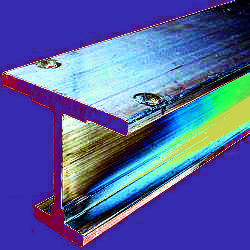Sims questions local fervour
 A once leading figure in Australian regulation says a fancy slogan could hinder progress.
A once leading figure in Australian regulation says a fancy slogan could hinder progress.
Speaking at the Melbourne Economic Forum, economist Rod Sims has criticised the federal government's “Made in Australia” industry policy, cautioning that it could significantly derail efforts to manufacture environmentally sustainable steel.
Sims, former chair of the ACCC, highlighted the economic repercussions of limiting purchases to domestic products, especially high-cost renewable energy equipment which could otherwise be sourced affordably overseas.
“How can we have low-cost renewable energy if we are saddled with high-cost solar panels, wind farms and electrolysers through a ‘buy local’ imperative?" Sims asked.
He noted the vagueness of the policy, which lacks a clear framework for determining which industries should receive government support during the transition to net-zero emissions.
“What is the framework in this slogan for deciding what Australia does, and does not, make in Australia? Should government support be provided to ensure we make our own computers, cars, clothing?” he asked.
He said ad-hoc decisions that could foster an environment ripe for rent-seeking, raising Australia's cost structure and lowering productivity.
Adding to the policy's complexity is the potential to exacerbate current labour shortages, an issue already acknowledged by the government's Skills Strategy.
“Australia already faces a shortage of labour,” Sims noted, arguing that directing labour towards industries where Australia does not have a comparative advantage could result in a scarcity of workers in sectors where the country could otherwise excel.
Treasurer Jim Chalmers has downplayed the inflationary risks associated with new industry policies, a view opposed by Productivity Commission chair Danielle Wood and former commissioner Gary Banks.
Both have warned against subsidising industries that cannot sustain themselves economically.
Prime Minister Anthony Albanese has dismissed criticisms similar to Sims' as “flat-Earth” economics.
However, Sims advocates for targeted government support in areas where Australia holds a competitive edge, such as the production of ‘green’ steel.
He proposed leveraging the country's status as a leading iron ore supplier and its capabilities in generating renewable energy for hydrogen production, necessary for green steel.
“All overseas studies that I am aware of suggest that Australia is likely the cheapest place in the world to make green iron,” Sims said.
He said there is a need for clear qualification rules for government assistance to prevent potential exploitation and ensure that funding is budgeted responsibly.








 Print
Print